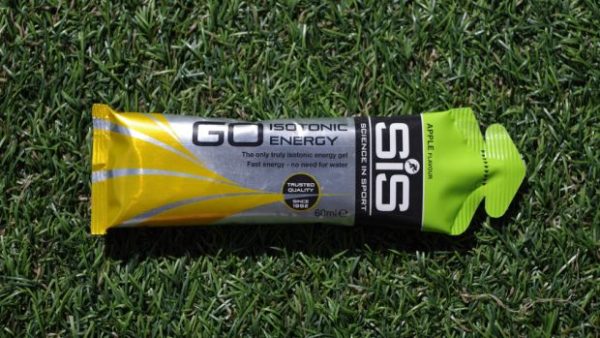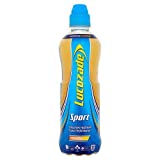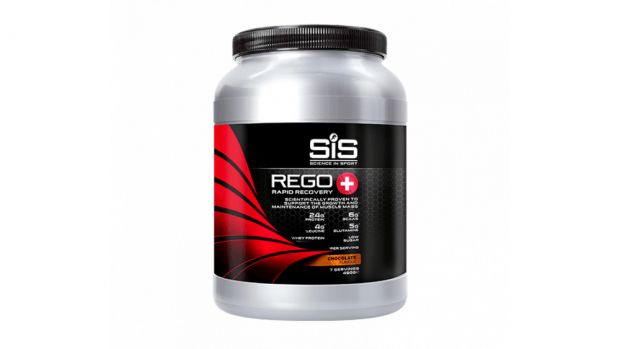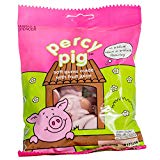
Even for regular runners, training for a marathon is a steep learning curve. While running a few times a week and tearing it up at your local parkrun every Saturday doesn’t involve too much thought beyond what gear to wear, covering the long distances required to prep for a 42.2km race means considering how to avoid injury, how to fit in and vary all the running you need to do and, lastly but by no means least-ly, how you fuel your body for all that exercise.
Most, if not all, of your fuelling should be done through your diet, but there are times when eating real food just isn’t possible or desirable – one of those times being the race itself – and that’s where supplements can help.
The main supplements to consider are ones that top up your carb reserves and electrolytes during long runs, and ones that help you restock and help the body recover during an arduous training schedule. There are also supplements like beetroot juice and caffeine that can help to boost your performance. In short, there are loads of different supplements you can use to help you body cope with the demands of marathon training. Here are the top types you’ll come across.
Running gels
Probably the most common marathon training supplement, these are scoffed by runners during long runs (anything over 90 minutes) to replenish their carb stocks. In the marathon itself, you’ll probably go through four of five gels – make sure you’ve already tried the ones you use in the race, because they can be hard on the digestive system.
Try: SiS Isotonic Gels

| £30 for 20 60ml packets
Sports drinks
These are a combo of carbs and electrolytes, and are good for fuelling before or during your longer runs. You won’t want to carry these with you for the event itself, which is why most people opt for more portable gels and electrolyte tabs, but they’re good during training or if you can grab them en route during the race.
Try: Lucozade Sport

Electrolyte tabs
Pop these in water and they dissolve quickly to create an electrolyte-rich cocktail, containing minerals like sodium, potassium and magnesium, which help your body to hydrate itself. Carb gels generally don’t have electrolytes, which you need to replenish when you exercise for a long period and sweat a lot. Having the tab with you means you can just grab water on the course of the race and create your own electrolyte drink.
Try: High5 Zero
Beetroot juice
Research into the nitrates found in foods like beetroot, spinach and rocket suggests they can have a positive effect on performance in endurance activities – apparently Leicester City used beet juice to great effect in their Premier League title-winning season. Beet It shots contain 400mg of dietary nitrate – try drinking them daily in the week before your event as well as having a couple in the 12 hours beforehand.
Try: Beet It

Recovery drinks
When weightlifters finish a workout they reach for a protein shake – but while runners need protein too, it’s more important to replenish carbs and electrolytes. If you’re undertaking a loaded training schedule and don’t have time or the inclination to do this through meals, a recovery drink like SiS REGO, which contains carbs, protein and electrolytes, is useful to have on hand.
Try: SiS REGO Rapid Recovery +

Buy from SiS | £26 for 1kg
Caffeine
We don’t mean chugging down a coffee before running, mainly because that’s a gastrointestinal risk only the foolhardy would take, but getting versions of the above supplements that contain caffeine can provide a timely boost. Save a running gel or electrolyte drink with added caffeine for kilometre 30 of your marathon – it might be just what your body and brain need to spur you on to the finish line.
Try: OTE Caffeine Gel
| £35.10 for 20
Energy bars
They’re harder to consume on the go than a sports drink or gel, but energy bars generally have the advantage of being far tastier and less likely to ruffle any gastrointestinal feathers. If you’re running an ultramarathon or taking part in any kind of event where you stop to refuel, energy bars are a great choice. They also make for a great pre-race snack.
Try: Clif Bars

Sweets
Yes, you read that right. If all of the above sounds a little too serious for you, then you can just opt for some of your favourite jelly sweets to fuel your running. It’ll be cheaper and tastier, though do be aware that some sweets are harder to chew when running than slurping an energy gel.
The nutritional number to look out for with sweets is the amount of carbs they contain. Percy Pigs are very strong on this front, containing almost 7g of carbs per pig, while jelly babies offer 5g of carb per baby. Isn’t it nice to talk about the high amount of sugar in those sweets in a positive way? However, both Percy Pigs and jelly babies can become a little less appetising if kept in a sweaty running belt during your marathon, so also consider jelly beans, because they usually have a hard shell that can keep them fresher for longer on the run. The own brand beans at your local supermarket will be cheap – it’s what we opt for.
Try: Percy Pigs
